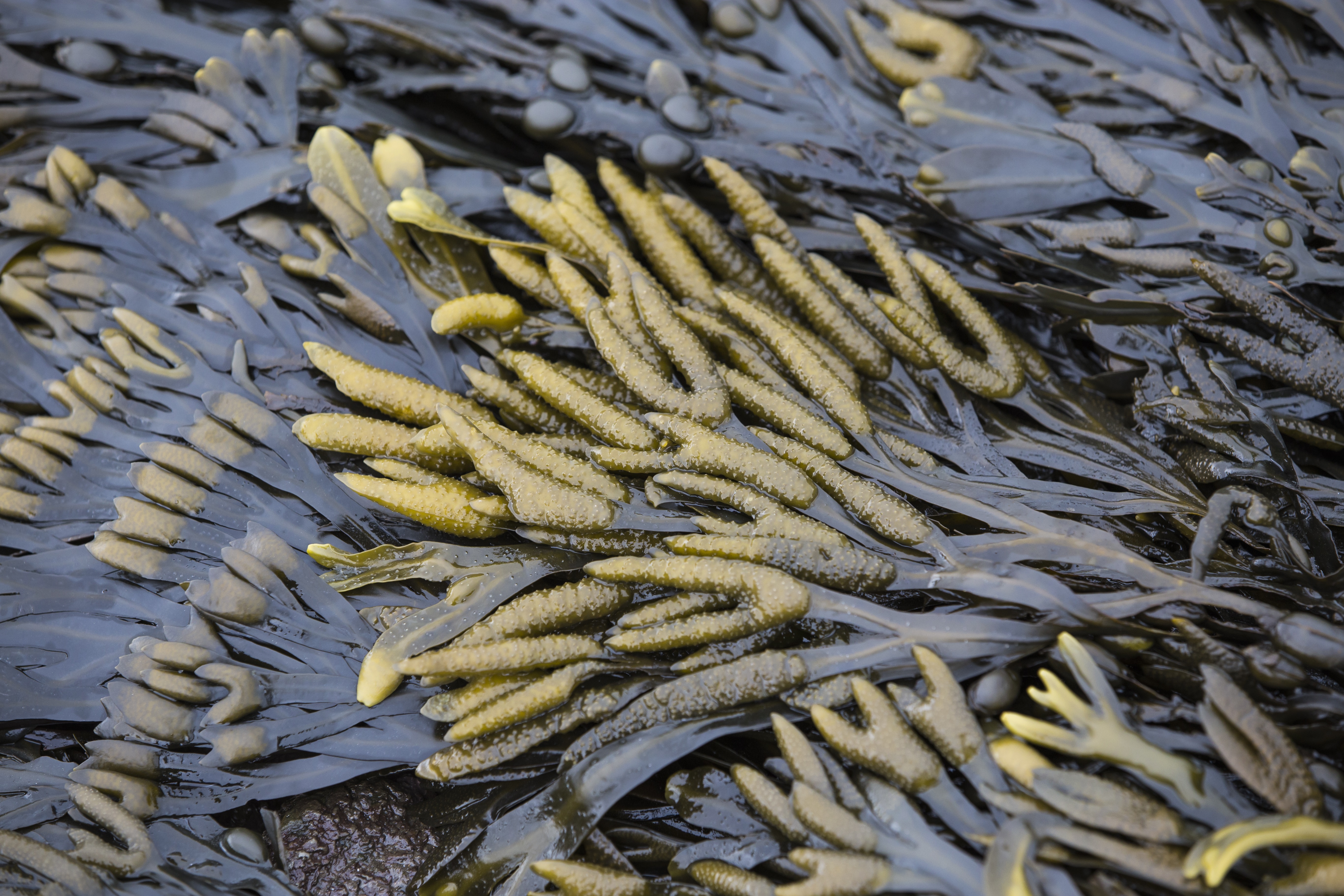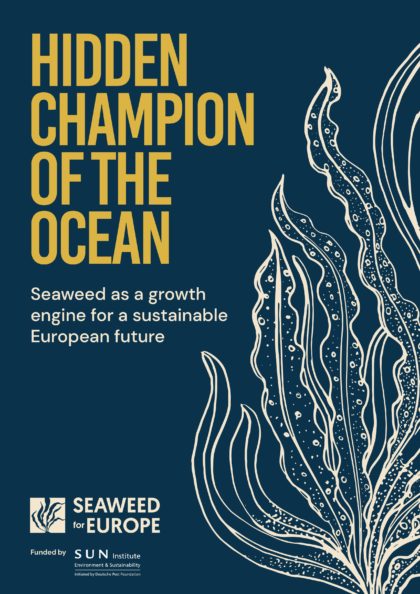New report shows the triple benefits to European economy, environment and society
driven by an expanded seaweed industry
London, 27 October 2020 — The economic potential of an expanded seaweed market in Europe could be worth €9 billion in just a decade, according to a new report, “Hidden Champion of the Ocean: Seaweed as a Growth Engine for a Sustainable European Future,” released today by the Seaweed for Europe Coalition. The report also finds that European seaweed industry could create up to 115,000 jobs in Europe by 2030 and deliver significant environmental and health benefits. Targeted investmentincreased research and development of new applications based on seaweed will be needed to unlock this opportunity.
“Our report shows seaweed can be an important driver of economic growth in Europe, with a number of environmental, social and health benefits—a triple win for the continent,” said Vidar Helgesen, Co-Chair of Seaweed for Europe and Special Envoy for the Ocean of the Norwegian Ministry of Foreign Affairs. “Seaweed can also play a role in a sustainable post-COVID-19 green recovery and contribute to a European Green Deal to drive both economic growth and sustainability.” Helgesen was also the Norwegian Minister of Climate and Environment from 2015-2018.
Seaweed is a type of algae that grows in a variety of forms and colours in the ocean. Rich in minerals, vitamins, and polysaccharides (a type of carbohydrate), with some species also containing larger amounts of amino acids, proteins and fatty acids, seaweed is a nutritious food as well as a nutrient-rich base for a variety of products including animal feed. Seaweed is also used in cosmetics and bio-packaging, with possible future applications in biofuel or textiles. The list of possible applications is constantly evolving, with promising research suggesting seaweed could also be used for example in detergents or green construction materials. The report shows the highest growth potential segments in Europe include seaweed-based animal feed, food and biostimulants for use in agriculture and horticulture.
While today Asia represents 99% of the world’s seaweed production, the report estimates that with the right combination of investment, technology and policy, seaweed grown in Europe could account for approximately 30% of the European market in 2030 (€2.7 billion). Boosting local production from 300,000 tonnes today to around 8 million tonnes by 2030 is possible but also crucial as most environmental and social benefits depend on it.
There are a number of environmental benefits associated with growing seaweed. First, farming seaweed does not require any freshwater, fertiliser or external inputs; there is no need to repurpose or clear land for its production. Seaweed also contributes to overall ocean health by addressing acidification and removing up to 20,000 tonnes of nitrogen and 2,000 tonnes of phosphorus from European waters per year in 2030. Seaweed also preserves biodiversity through provision of habitats and food for fish.
In addition, an expanded European seaweed industry could offset greenhouse gas emissions of up to 800,000 Europeans per year in 2030 (based on emissions avoided by the animal feed, bio-packaging and biofuel segments), with potential for further offsetting through additional product segments. It also supports reduction of other negative impacts from the production of existing products, e.g. seaweed bio-packaging as a more sustainable, marine safe alternative to existing plastic materials.
The report also shows that realising the potential of a European seaweed market could create up to 115,000 jobs in Europe by 2030. This employment boom has the potential to diversify livelihoods and revitalise lower income coastal areas. By comparison, this represents more jobs than in the entire European aquaculture sector in 2017.
Several challenges, however, have hindered the growth of the European sector to date, including unfit and complex licensing processes; lack of cost-efficient technologies; lack of industry infrastructures and value chain integration; and limited investment. According to the report, these challenges have created a vicious circle as neither supply nor demand is stimulating industry growth. Put simply, farmers and processors want to scale production to increase volumes and drive costs down, but cannot rely on long-term, price-stable, off-take guarantees. Buyers, in turn – for instance food and beverage or cosmetics incumbents – complain they cannot find desired volumes at a decent price and therefore import seaweed from Asia.
The report shows there is now good news: conditions are ripe to support expansion of the European aquaculture industry thanks to a number of factors, including: the continent’s nutrient-rich and cold waters which are well suited for seaweed growth, an increasing demand for high quality and traceable seaweed, a dynamic technology and innovation community, and close alignment with the EU Green Deal agenda.
“To realise the full potential of seaweed, policy makers need to understand the value at stake and adapt policies to create the conditions that will allow it to thrive,” said Maria Damanaki, Co-Chair of Seaweed for Europe and former European Commissioner for Maritime Affairs and Fisheries.
Maren Hjorth Bauer, Co-Chair of Seaweed for Europe, as well as Founder of Fynd Ocean Ventures and Co-Founder of Katapult Ocean, stresses the importance of investment to unlock the potential of the European seaweed industry. “Policy makers and investors hold the key to unlocking the value of the seaweed industry in Europe, and such an investment would yield dividends for business, the environment and society.”
Certain priority areas need to be addressed to resolve existing barriers and create the necessary pre-conditions for growth (e.g. within science, policy, technology). To this end, Seaweed for Europe is launching a dedicated 2020/2021 action programme together with its members, focusing on the following priority areas:
- Optimise seaweed farms licensing process
- Attract (public and private) investors to the seaweed space
- Create a strong and collaborative stakeholder network
- Establish robust safety standards and comprehensive certification system
- Raise awareness on the benefits and potential of seaweed
- Leverage science to accelerate innovation
“We are seeing growing momentum and energy across Europe on Seaweed,” says Adrien Vincent, programme director, Seaweed for Europe. “Together with more than 45 organisations spanning across the seaweed value chain, investors and academia, the coalition is poised to mobilize the right decision makers and resources to fully realise seaweed’s potential in Europe.”
Download the full report below.


